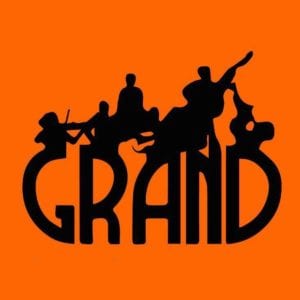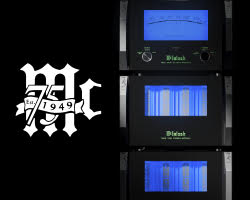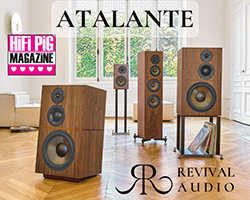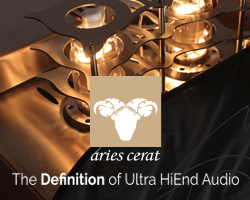Síle Ní Riain of Ireland’s Grand in interview with James Fleming!
Only in Ireland…
Grand: adjective
1. Magnificent and imposing in appearance, size, or style.
2. Denoting the largest or most important item of its kind
…could we get that so horribly wrong.
‘…We’re not great, we’re not shite, we’re Grand,’ Síle Ní Riain explains. A self-deprecating basis for a band name if ever there was one.
For in Ireland, grand doesn’t mean the above definition. Grand, over here, means ‘ara sure it’s alright.’ Even when the shit has hit the fan, when the boat has sunk and the car is in the lake; ‘sure lookit, it’ll be grand.’
Grand – the band for whom Síle plays fiddle that is – are far from merely grand. Their gig that Thursday night upstairs in The Quays took the crowd by storm and up into the stratosphere. It would’ve lifted a bald man into heaven by the hair of the head.
But before all that, in a French-themed café just off the beaten cobbled main drag, Síle lays out Grand’s humble beginnings to the beat of baristas making late-evening coffees.
‘It originally started off as a three piece with Peter Barnett, who’s the bass player, Philly Kermode who’s the guitarist, and John Hand who’s the cajon player.’
Initially, Grand we’re just going to do a bit of busking. But, with the addition of more instrumentalists, the band started to take on a life of its own…
‘So they brought in Kiefer Wilton on trumpet, ’cause they’d be good friends and all that from school.’ But, when Kiefer hit off on holiday, and with gigs looming over the horizon, they needed someone to handle the melodies. So Robin Matthews (banjo) was drafted in to fight that corner.
‘So then there were five… and they got in touch with me. And I completely ignored them.’
Síle was just back from Germany and working in a pub, where Grand would regularly confront her while she was being run ragged at her workplace.
‘I don’t know who these people are! What do they want?!’
They wanted a fiddler. And after an impromptu jam at a party followed by an off-the-cuff gig where Síle played by ear ‘and hoped for the best,’ there were six players in Grand’s rag-tag motley gang.
And for a while that’s how it stayed. Grand toured abroad and brought festival crowds to their feet, with acclaim following them like rats trailing the pied piper.
Then, someone had a bright spark; it was known that a friend of the band’s, Danny McEvoy, was a helluva drummer. And it was decided that a second percussionist would be a good idea/good craic, and so Danny was brought in. That bright spark turned into a roaring fire, and Grand as we know them was formed.
Roots music has gone through a bit of a butchering in the 21st century. With the likes of Mumford and Sons bringing banjos into the Enormodome abattoirs and Ed Sheeran’s multi-platinum selling folk-pop spawning legions of mediocre imitators.
But Grand display not only tremendous skill in their arrangement of the various styles that influenced them, but an in-depth knowledge of the wider world of roots music in their melding of these disparate styles.
A love for the rawer shelves in the record shop – blues, folk, reggae/ska, punk, etc – was something the seven members of Grand each had individually before coming together.
‘Everyone just brings in what they have,’ Síle says. ‘When we write, someone comes in with an idea and there’s a bit of working around and jostling. Someone comes in with a line or something really cool and rhythmical, and it just seems to manifest itself that way. It’s quite organic in that respect.’
Grand’s original material, and it’s damn fine material, is very much the result of group effort…
‘They [the songs] would be. Philly himself would tend to come in with an idea… Someone would come in with something they’d think is cool. And we then start working together. And also like in little chunks separately.
‘Primarily, we’re playing to enjoy ourselves. To do something that we think is challenging, that’s really cool, to be able to think about what we’re doing. Other times we’re just really into how good it makes you feel or how into it you get.’
Grand manage to combine all the aforementioned styles and more into one cohesive sound, without adhering to the clichés of the various genres that they’re drawing influence from.
Avoiding the clichés is no easy task. But it all comes back to Grand enjoying what they’re doing. Avoiding platitudes and banality is synonymous with avoiding boredom for the members of Grand.
Ireland has had a deep influence on Grand’s sound. Traditional Irish music is an intrinsic element of Grand’s concoction of styles, and Síle grew up playing traditional Irish fiddle.
‘I was quite lucky in that respect. My dad’s family were quite musical and my granddad as well. My dad would have the ceoltas happening every Tuesday in his front living room – or whatever day it was. And all his brothers and sisters had the same thing. So, I started playing when I was four. And the way I was introduced to playing was everyone was playing the instruments around me.’ And Síle’s aunt taught violin. So she had the best of both worlds: classical technique combined with a trad influence.
Grand hail from Drogheda, a town in the north-east of the Emerald Isle. And the live scene there in this unassuming town has left an indelible impression on the band.
‘It’s been brilliant for years! Like, for at least the last forty years it’s been unbelievable. There’s been live bands there for years. Underage kids but also adults playing music all the time. So I think it would have definitely been an influence.’
Grand are one of many bands playing more earthy styles of music across Ireland. Síle lists off the Stone Cold Hobo, Mutefish and Mongrel State, to name but a few, to join such other stellar groups as Galway Street Club and the very successful We Banjo 3.
What these groups have in common, is their mixing of all the rootsy genres one can imagine in a vast melting pot to create the folk music of the 21st century. The times they have a-changed. The bands have understandably had to change too.
Bigger, bolder, LOUDER, these folk groups sing their songs – timeless classics and their own original material – on the side of the street and in the backrooms of pubs up and down the country. What remains to be seen is whether or not any of them will reach the height of success of the aforementioned We Banjo 3 or shoot into the stratospheric realms of the stadiums.
Whether they do or they don’t, bands such as Grand remind us with their hard-partying tunes that despite all the hatred and bile rampant on our little blue-green world, anytime is a good time to be alive.
by James Fleming

















































































































































































































You must be logged in to leave a reply.